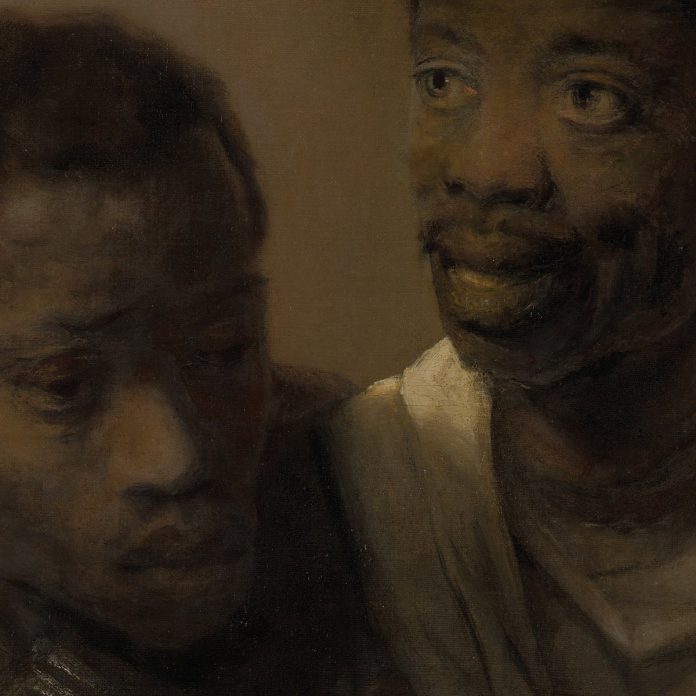Andy Knox
Staff Writer
Pessimism, esotericism, and dark humor sound like three reasons you might want to avoid someone, but they are also some of the quintessential qualities of billy woods, one of the industry’s most underrated rappers. He stylized his rap name in all-lowercase characters long before it was cool, and he is so hard to reach that he keeps his face, government name, and even birth date concealed from the public. His spoken-word style, complex imagery, and apathy toward whether his listeners understand his lyrics, gives him a unique sound and makes for a rewarding listening experience.
Being the child of a Zimbabwean revolutionary and having grown up in both Africa and America, woods has a unique perspective on political issues, which tend to underlie his music. This influence is more apparent than ever on his newest album, Aethiopes, the word originally used by Europeans to refer to Ethiopians. He stated the album’s concept, though too complex to fully state in an interview, is centered around, “Blackness as an idea, Africa as an idea, Africa as a reality. The diaspora, looking at the land and vice versa … the other, and ideas of blackness … it’s an idea — like, Europeans decided what Blackness was.”
The album opens with “Asylum,” an eerie track that is emblematic of his work as an artist; it is vivid, mysterious, dark, human, and pessimistic. The opening line,“ I think Mengistu Haile Mariam is my neighbor,” puts the listener in Zimbabwe, near the home of a deposed socialist Ethiopian leader. With chilling imagery, the young speaker describes how he feels trapped in his wealthy family’s house and looks curiously toward the house. Every single line cuts deep. The second verse is from the perspective of Mariam himself and the ominous chorus expresses the concept of fear in captivity linking the separate verses, a unique and compelling structure woods also employs on the vivid and cinematic track, “Christine.”
In “Versailles,” DJ Preservation manages to make a police siren sound beautiful and the marching beat makes me feel like I’m climbing Mount Everest and questioning whether the glory will be worth the struggle. Critiquing capitalism is so common in music that it often feels played out, but woods and Despot make it feel like the first time seeing the economic system’s cruel side. The lyrics, “End of the day, day-traders make minimum wage / Pennies on the dollar once it’s all said and paid / Penny stocks, stocking cap pulled over the face,” give subtle Ebenezer Scrooge imagery hinting toward a larger concept that even the most selfish money grubbers are sympathetic victims of the system. “God is watching but I guess he got plenty of cheeks to turn,” is another highlight of the palpable pain and utter indignation spoken beautifully in the song.
The production, meticulously handled by DJ Preservation, is resourceful and immersive. Preservation called the project, “[O]ne of the more symbiotic, feedback loop processes of making an album that I probably ever had.” The production is weird and is hard to listen to without quality speakers, but the harmonicas, timpanies, sirens, steel drums, flutes, and fuzz present in different places throughout the album all feel perfectly placed to fit with the song’s concept and the performers’ attitudes.
“NYNEX” opens with some of the most memorable lyrics not just in the project but in woods’ career: “The future isn’t flying cars it’s Rachel Dolezal absolved.” It also features incredibly powerful verses from several underground rappers. The shuddering harmonica sample and rattling tambourine give the song a vibe that has the usual spookiness and intensity of a billy woods song but with an energy that complements the braggadocious one-liners and indignant political lines in the feature verses.
The lines from “Remorseless,” “Spare me the Hallmark Karl Marx / I was in the Dollar Tree break-room playin’ cards with quarters / Stop loss posters on the wall, brick and mortar / I watched the planet from orbit, remorseless,” artfully justify woods’ bitter outlook on life. Other tracks, including “No Hard Feelings” and “The Doldrums” accomplish the same, guiding the listener through incredibly heartbreaking, movie-like storytelling.
Sadly, the depth and complexity of each track make it difficult to convey each song’s beauty with brevity. There is simply not enough time to explain woods’ sampling of the 1970 film adaptation of legendary African playwright Wole Soyinka’s play “Kongi’s Harvest” and how the samples tie the album together. The album’s sound is admittedly hard to acclimate to, and most of the songs still do not make for a great listen unless one is in the specific mindset of ruminating on some difficult subjects. This being said, when one desires such, Aethiopes is an album of 13 brilliant, non-preachy critiques of institutions and chilling, cinematic vignettes of personal lives.
Rating: 9/10











